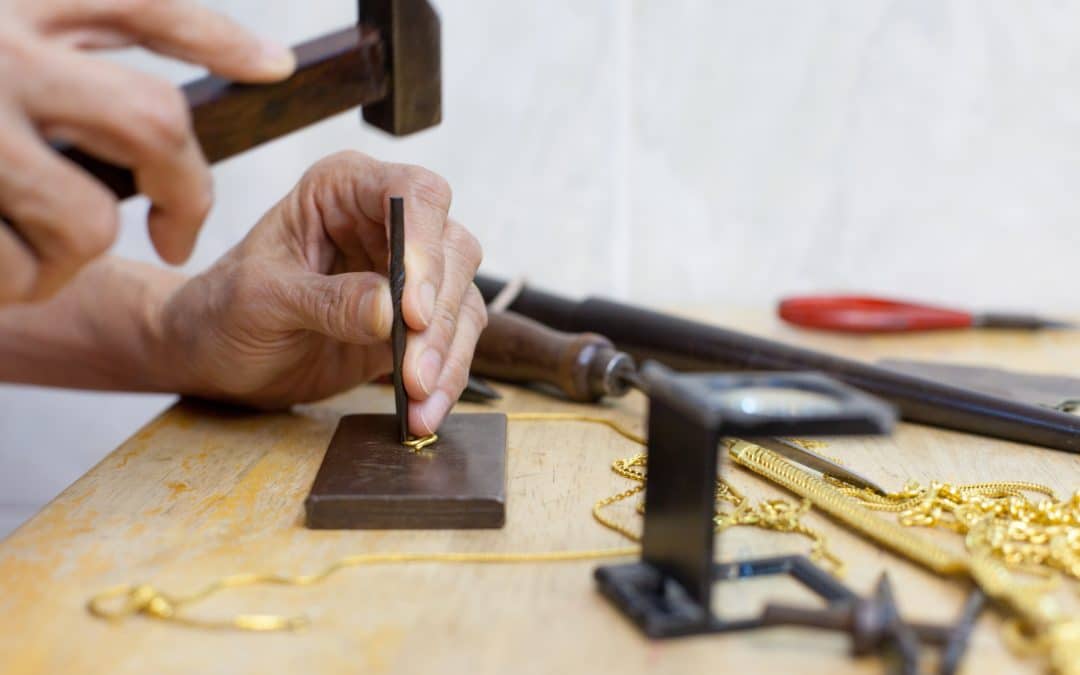Often cherished for their elegance and sentimental value, necklaces are precious accessories that deserve careful attention when it comes to repair and maintenance. Just like any other piece of jewellery, necklaces can lose their lustre over time or suffer from damage. However, no matter what happens to your jewellery or how desperately you want to fix it, you should never do the necklace repair yourself!
In this article, we will explore the dos and don’ts of repairing necklaces and provide valuable guidance on restoring the beauty and longevity of your cherished accessories.
However, we at Saint Gyles encourage you to explore its warranty before taking your prized possession to an experienced jeweller. In this way, you do not need to find a trusted repairer. You may also have the chance to save those hard-earned pennies as some shops and retailers offer discounted pricing for in-house repairs.
Dos of Necklace Repair
A. Seek professional assistance
When repairing a necklace, professional assistance is vital. Expert jewellers possess a myriad of knowledge, the correct set of tools, and a plethora of experience required to handle delicate repair work. Trusting professionals ensures that the repair process is meticulous and reliable.
B. Assess the damage
Before embarking on any repair work, assess the extent of the damage on your necklace. This evaluation will guide the repair process, ensuring you address all issues comprehensively and avoid potential complications. This also helps prevent multiple trips to your repairman, saving you time and effort.
C. Use high-quality material
Selecting high-quality materials for the repairs is vital due to the fragile nature of some necklace designs (think of the delicate beads of popcorn chains and such). Whether you’re replacing a clasp or a chain link, ensure that the materials used are durable and match the original design to maintain the necklace’s aesthetic and functional integrity.
You can ask your jeweller what materials they use to repair damaged pieces.
D. Preserve the piece’s design and aesthetics
During the repair process, make it a priority to preserve the original design and aesthetics of the necklace. Any alterations should be made with great care to maintain the piece’s elegance and style.
A significant alteration should only be made when the piece in question is beyond economical repair. That being said, you may want to have your piece repurposed.
E. Follow professional care and maintenance advice
Once your necklace is repaired, following professional care and maintenance advice is essential to ensure it stays in pristine condition. Expert jewellers, such as our team at Saint Gyles, can provide guidance on how to clean, store, and wear your necklace to prevent future damage.
Also, do adopt a regular cleaning routine for your jewellery. A mild soap and water solution is often enough to clean your treasured jewellery pieces. Avoid using jewellery cleaners on fashion pieces as it may cause premature wear. They may even damage softer stones in your jewellery.
Don’ts of Necklace Repair
A. Perform the repairs on your own
One of the most crucial “don’ts” of repairing a necklace is attempting to fix it on your own. This may be more tempting, especially if you want to save a few pennies. DIY repairs can lead to irreparable damage, resulting in the loss of your cherished piece.
B. Neglect professional consultation
Neglecting professional consultation is a mistake. Even if you’re considering a DIY approach, consulting a jeweller can provide valuable insights and recommendations, preventing costly errors. This ranges from routine cleaning to major repairs.
C. Rush the repair process
Rushing the repair process can lead to subpar results. Take the time to ensure that each repair is executed meticulously to preserve the necklace’s elegance. Quality repair takes time and, therefore, should not be time-constrained.
D. Go for the cheapest repair service
Opting for the cheapest repair service can often compromise the quality of both the repair work and the materials used. Some budget jewellery repair services utilise subpar materials during the repair process. These services tend to rush through their work, leading to a lack of precision and a generally sloppy outcome. It’s important to remember that quality comes at a price, and when restoring your necklace, making the right investment is essential.
E. Hire unqualified jewellers
Be cautious when selecting a jeweller for the repair work. Hiring unqualified or inexperienced individuals can result in further damage to your necklace. You might as well DIY the repair.
Choose reputable professionals who excel in necklace repair, such as our team of specialists at Saint Gyles Jewellers. Having served Northampton since 1982, we have the skills, knowledge, and expertise to repair or restore your precious necklace to pristine condition.
Conclusion
Restoring the elegance of your cherished necklaces requires careful consideration and professional expertise. Incompetently finished works often drastically affect the functionality and resale value of your valued jewellery. By following the dos and don’ts of repairing a necklace, you can guarantee that your precious pieces maintain their lustre and value for generations.
At Saint Gyles Jewellers, we repair and restore all types of jewellery, from precious family heirlooms to exquisite timepieces. Get in touch with us, and we’ll bring your beloved necklace to tip-top shape.
